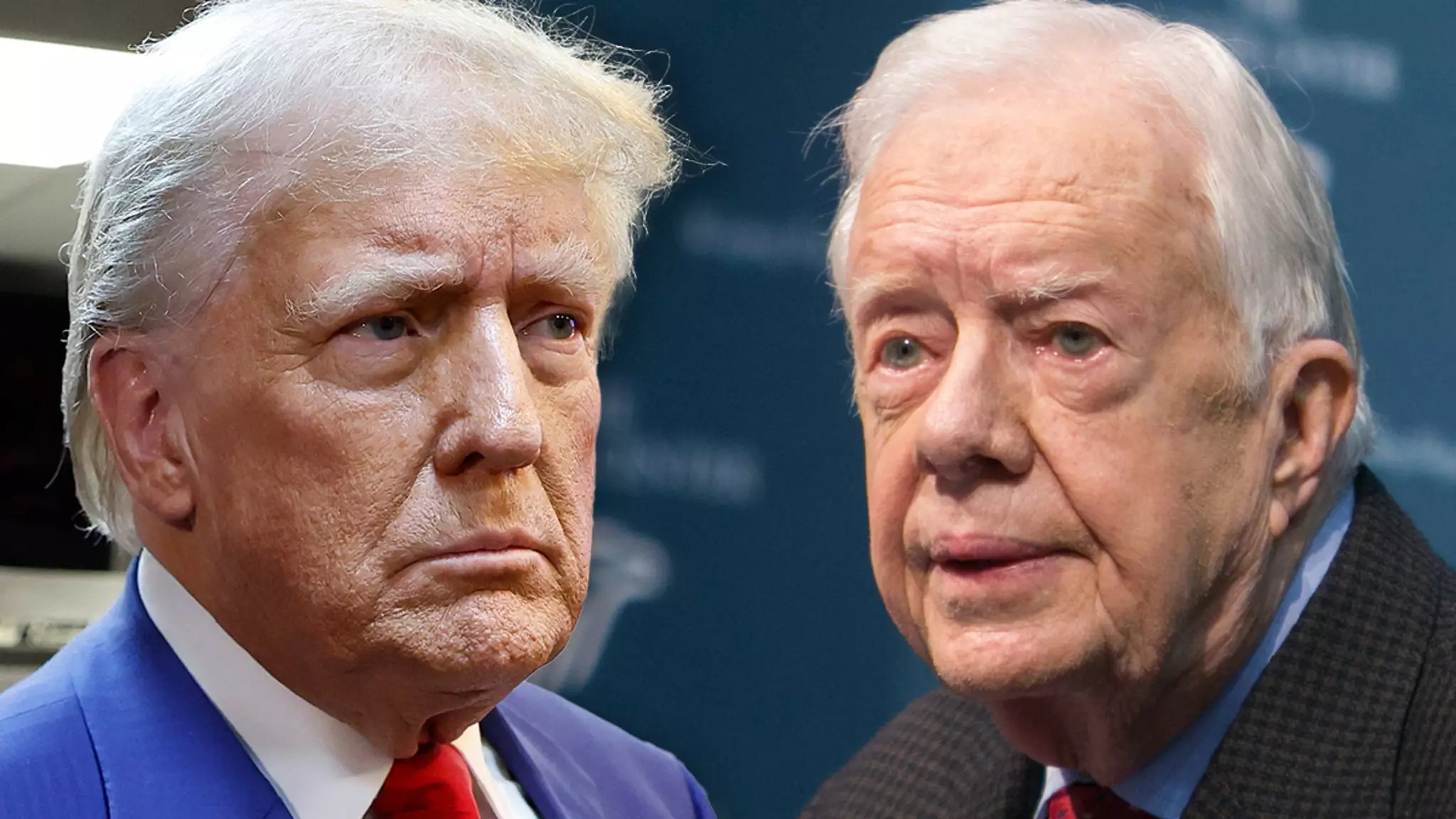The recent death of former President Jimmy Carter at the remarkable age of 100 elicited a broad spectrum of reactions across the political landscape. Among these tributes, Donald Trump recognized Carter’s efforts to uplift American lives, acknowledging the burdens and challenges inherent in the presidency. Trump’s statement on his social media platform, Truth Social, highlighted Carter’s dedication and how he strived to handle the myriad issues of his presidency. This acknowledgment of mutual respect, albeit delayed, sheds light on the often contentious nature of political relationships and the importance of recognizing contributions regardless of prior animosities.
Trump’s tribute stands in stark contrast to historical sentiments expressed during Carter’s lifetime. Notably, just two months prior, Trump had disparaged President Joe Biden, comparing him unfavorably to Carter, whom he dubbed “the happiest man” in light of current political dynamics. This evolving narrative reveals the complexity of how former presidents are perceived over time, especially in contrast to their successors. It suggests that as the years pass, political actors may choose to reflect indulgently on their predecessors, recognizing their achievements even when rivalries were once pronounced.
Carter’s legacy is multi-faceted, demonstrating his commitment to public service beyond his time in office. He pursued humanitarian efforts, global peace initiatives, and participated in community development long after his presidency ended. The Carter Center, a nonprofit founded by him and Rosalynn Carter, has worked tirelessly to improve global health and democracy, emphasizing Carter’s belief that leadership extends far beyond political realms. Such aspects of his life serve as a reminder that the role of a president is not confined to the White House, but rather encompasses enduring contributions to society.
Lessons from a Life Well-Lived
As tributes pour in from various sectors, what emerges is a universal recognition of Carter’s humanity and humility. His dedication to service serves as an example for future leaders, demonstrating that true leadership is measured not just by decisions made in office, but by the commitment to making the world a better place. The American public is reminded of the power of compassion and kindness in leadership, traits that sometimes get overshadowed by political agendas.
In the wake of Carter’s passing, it’s crucial to reflect on the lessons he embodied. The discourse surrounding his life presents an opportunity for current and aspiring leaders to evaluate their own contributions to society and how they can honor those who came before them. As we remember Carter, we are called to transcend political divides and seek commonalities that bind Americans together. His life, marked by both triumph and trials, stands as a beacon for how to engage with one another civilly and constructively in a polarized political climate. In honoring Carter, let us strive to embody the principles of empathy and service that he championed throughout his life.

